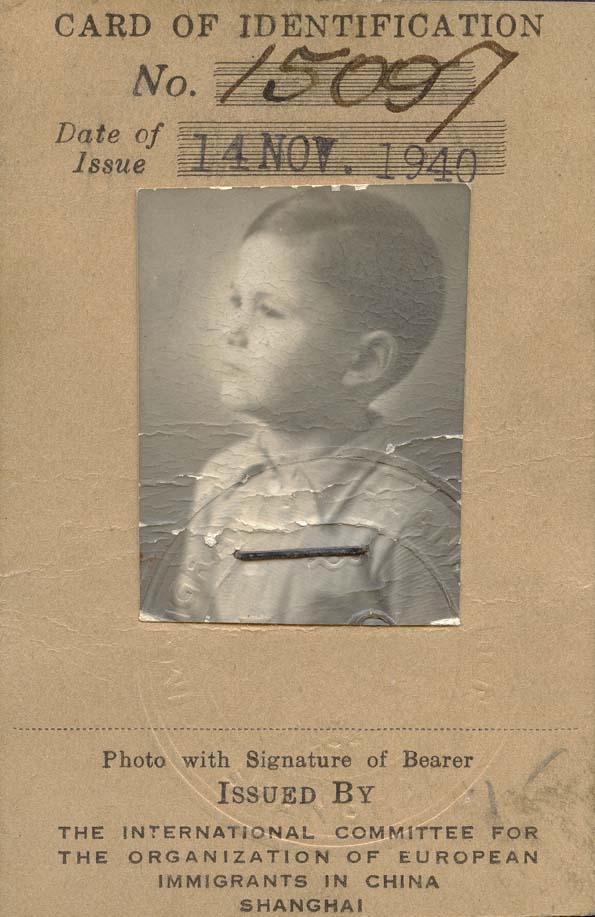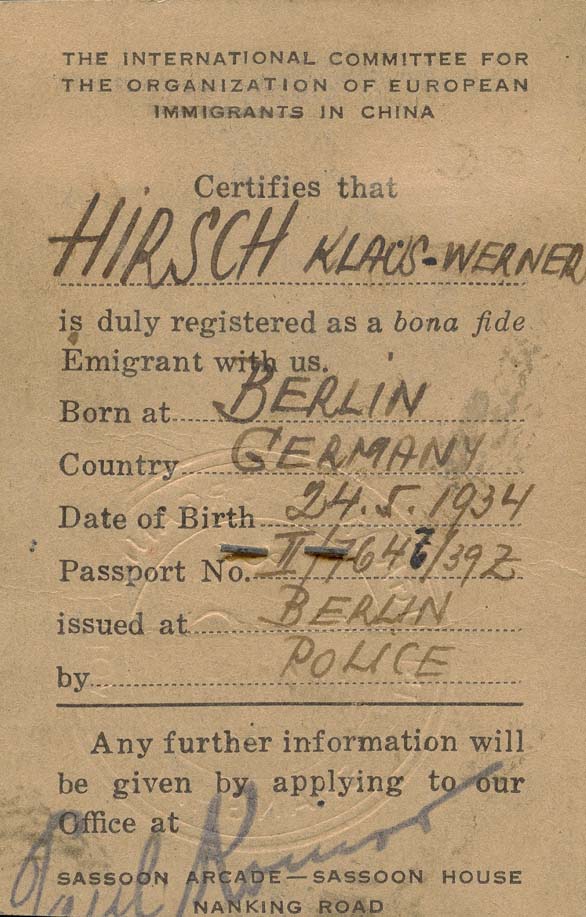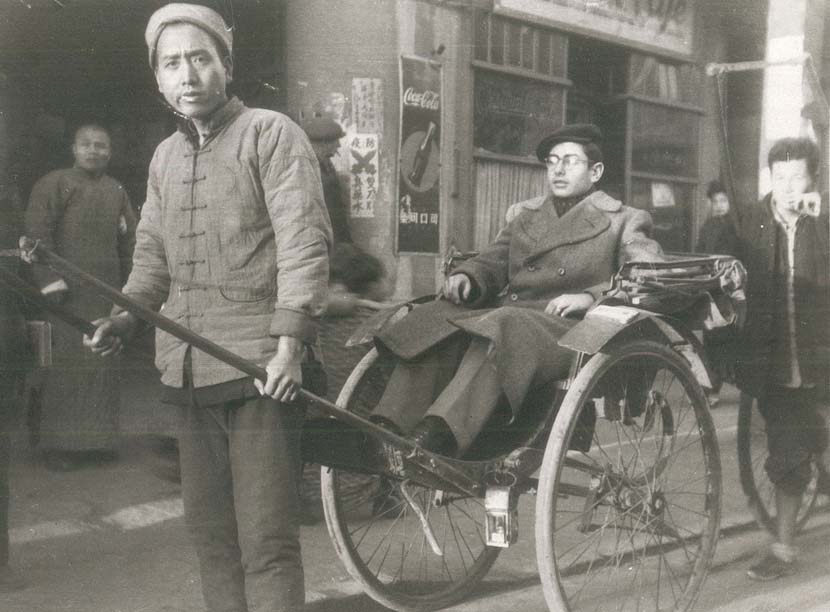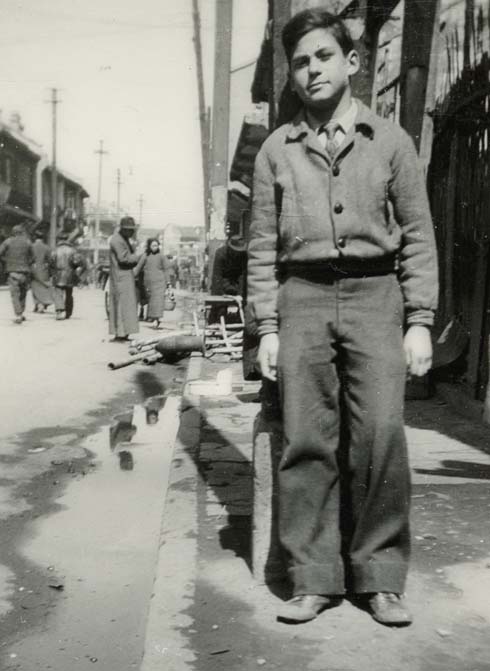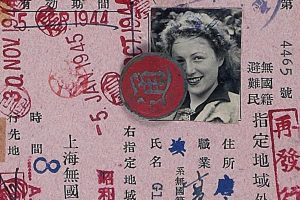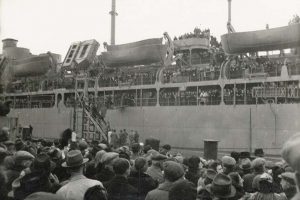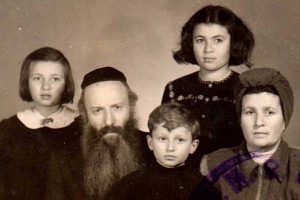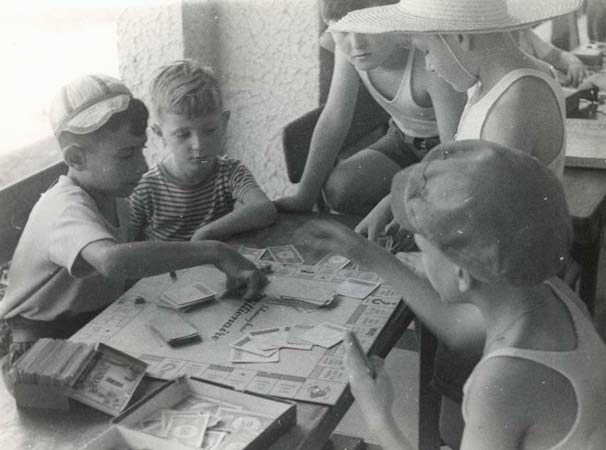
A Game of Chance
Poignant memories from a childhood spent in China
Today in the JDC Archives, Claus Hirsch is best known for his indexing skills, having worked tirelessly over 10 years to catalog lists of JDC aid recipients, that have now been transformed into genealogical gems for researchers. But his connection to JDC dates back decades further to his days as a Jewish refugee in Shanghai, where he received vital assistance from the organization. Claus fled Berlin, Germany in 1940 with his parents and brother Ralph. They traveled by train through Poland, Lithuania, and Russia and then rode on the Trans-Siberian Railroad for nearly two weeks. Finally, a two-day voyage on a small Japanese ship brought them to the port of Shanghai.
ID card belonging to Claus Hirsch issued by the International Committee for the Organization of European Immigrants in China, Shanghai. Courtesy of Claus Hirsch.
About 18,000 Jewish refugees had fled to Shanghai, China by the end of 1941. As an open international city, Shanghai was one of the only options for those who could not obtain visas for other countries. Desperate to Leave Germany, the Hirsch’s took a chance on the far flung destination. In Shanghai, Claus and his family lived in Hongkew, an area overflowing with refugees, many of whom could not afford to live elsewhere, given the meager amount of funds they were allowed to leave home with. The area even came to be known as “Little Vienna,” owing to the amount of German and Austrian Jews residing there. After the Japanese invasion of Shanghai in 1941, the district eventually became a ghetto, home to Chinese and foreigners alike. It was on those streets that Claus witnessed people starving, a memory that still brings tears to his eyes.
The JDC sent its representatives Laura Margolis and Manuel Siegel to assist the destitute Jews who faced deplorable sanitary conditions and drastic food shortages. In cooperation with the local Committee for the Assistance of European Jewish Refugees, Margolis and Siegel built a well-oiled emergency relief operation, including hostels to house the refugees, food programs and other critical services that sustained the refugees for the duration of the war. Together, they succeeded in organizing a system of emergency relief with the equipment needed to run steam kitchens capable of feeding 10,000 people per day. These kitchens kept the refugees alive for the duration of the war staffed by volunteers, including Claus’ mother. The JDC also provided education, vocational training, built hospitals, and set up emigration offices.
The Hirsch Family relied on these services daily during their time in Shanghai. In fact, a Shanghai Refugee Client List indicates that Claus and his family were assisted by JDC. With the organization’s help, they were able to secure passage to the United States and in 1947, set sail for San Francisco on the USNS Marine Lynx. Bored aboard the ship, Claus recalls that he and his brother were eager to play the board game “Shanghai millionaire”. Akin to monopoly, it was their favorite game, so they thought, why not unpack it! Immediately, their father ordered them to put the game away, citing that their mother would disapprove. Disappointed and confused, the boys stopped playing and found other activities to pass the time. Later, they found out that the real reason they were not allowed to play was because their parents had hidden real cash among the contents of the board game in lieu of paper money. Their family had struggled in Shanghai and they weren’t taking any more chances.
After a 7-day voyage, the family arrived in San Francisco, eventually settling down in Denver, Colorado. Claus became a United States citizen in 1953 and attended school at the University of Denver and the University of Pennsylvania. To this day, he credits “JDC with really provid[ing] people with the bare bones of life. Without JDC’s help in Shanghai, it would have been mighty, mighty tough. I was inspired to work for the JDC, because I thought this was a fantastic opportunity for me to pay back. What JDC did for my family and thousands of other families in Shanghai was to really make the difference between living and not living.”
This story has been shared with Claus Hirsch’s permission. He volunteered in the JDC Archives for 10 years after a 25-year career with Lehman Brothers in New York.
